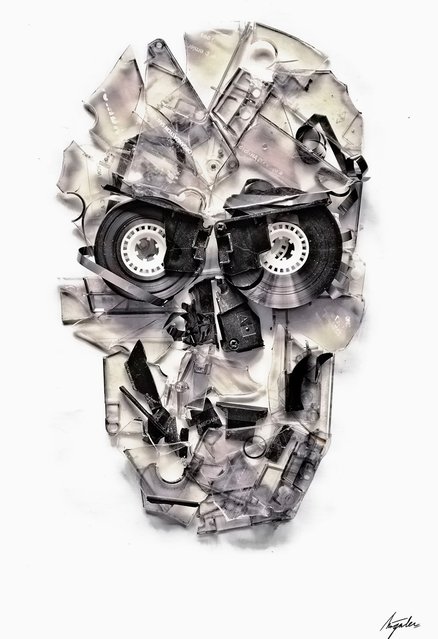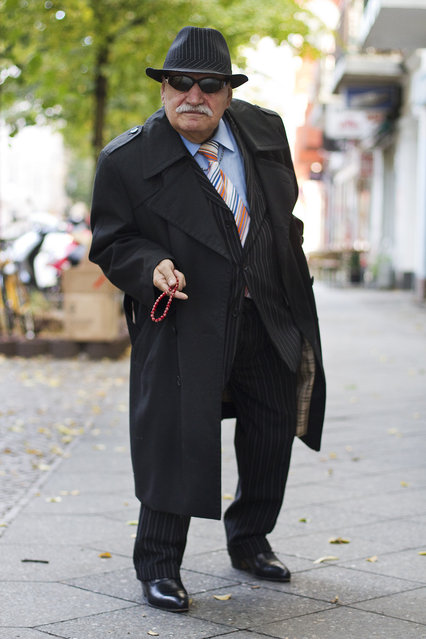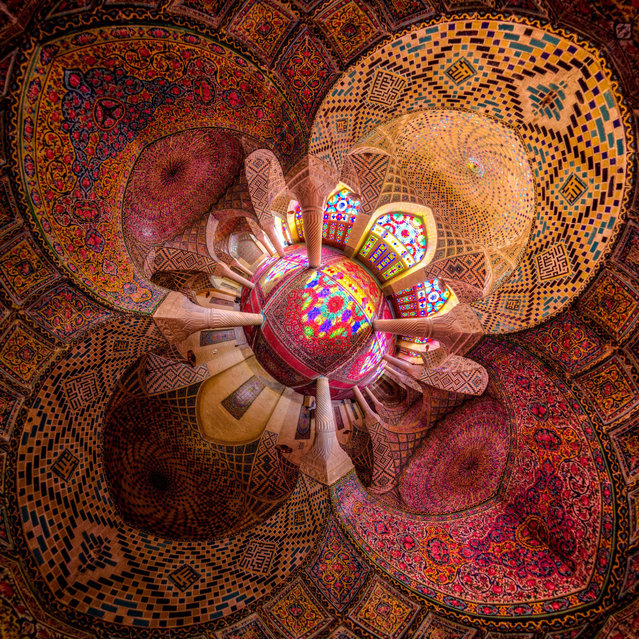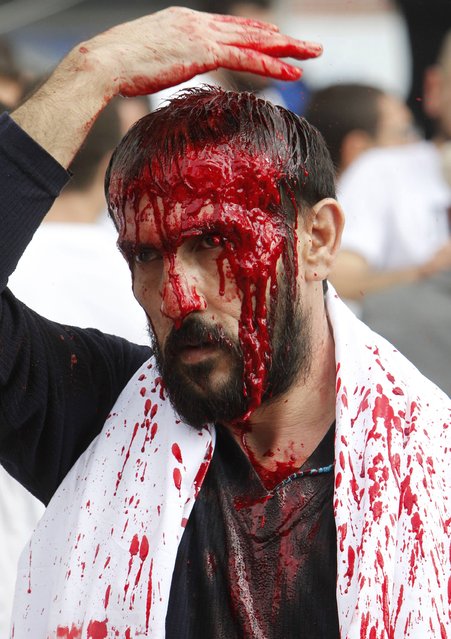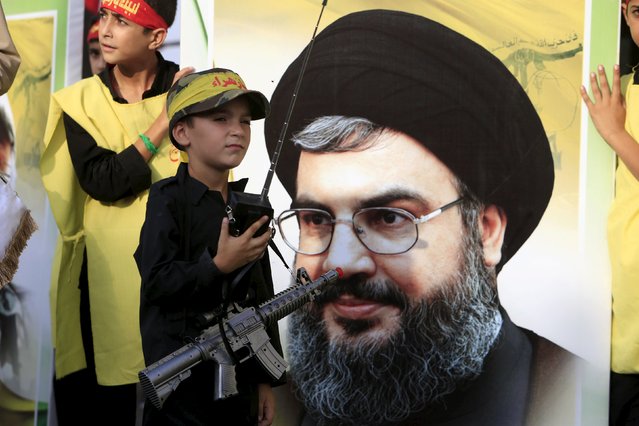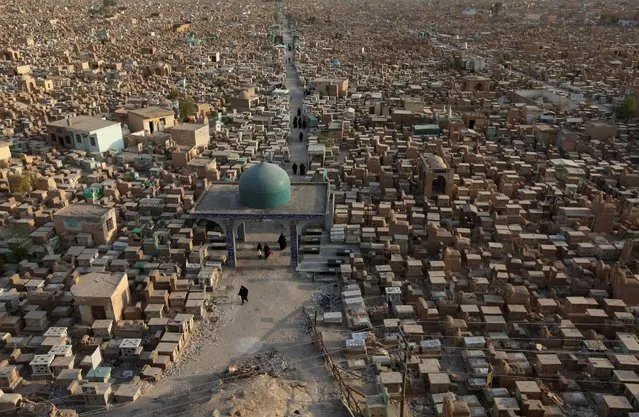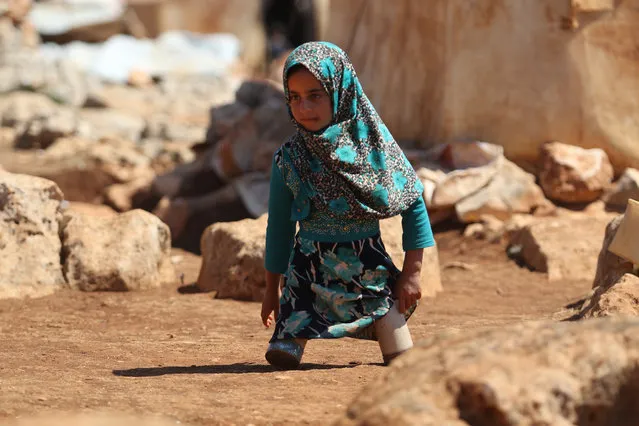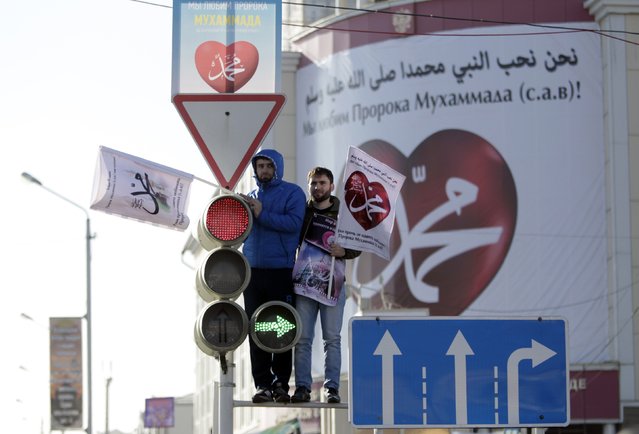
Men stand at the top of a traffic lights post as they attend a rally to protest against satirical cartoons of prophet Mohammad, in Grozny, Chechnya January 19, 2015. Tens of thousands of people staged the rally on Monday in Chechnya against French magazine Charlie Hebdo's cartoons of the prophet, which the predominantly Muslim region's leader denounced as “vulgar and immoral”. The posters read, “Mohammad”. (Photo by Eduard Korniyenko/Reuters)
20 Jan 2015 12:48:00,post received
0 comments

